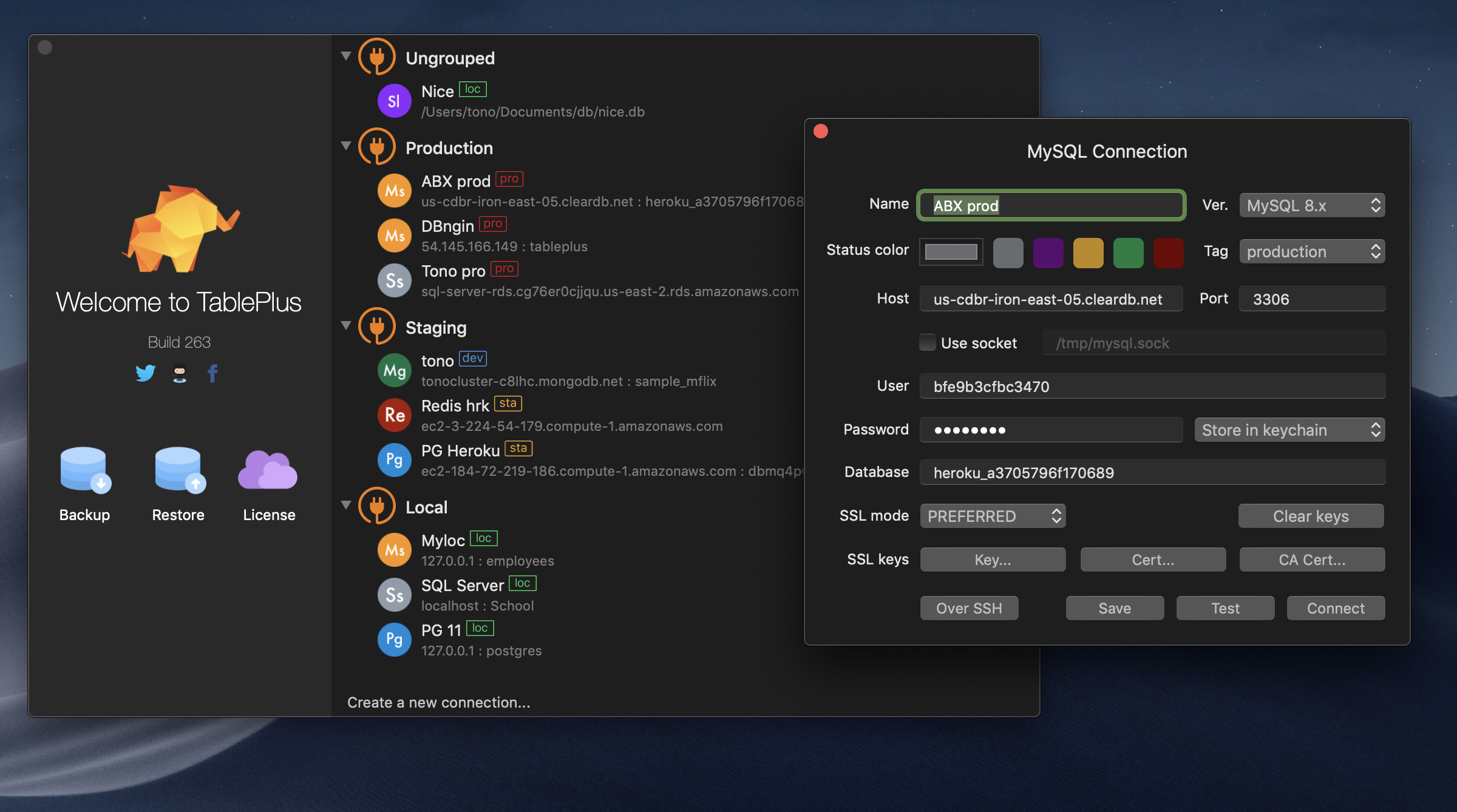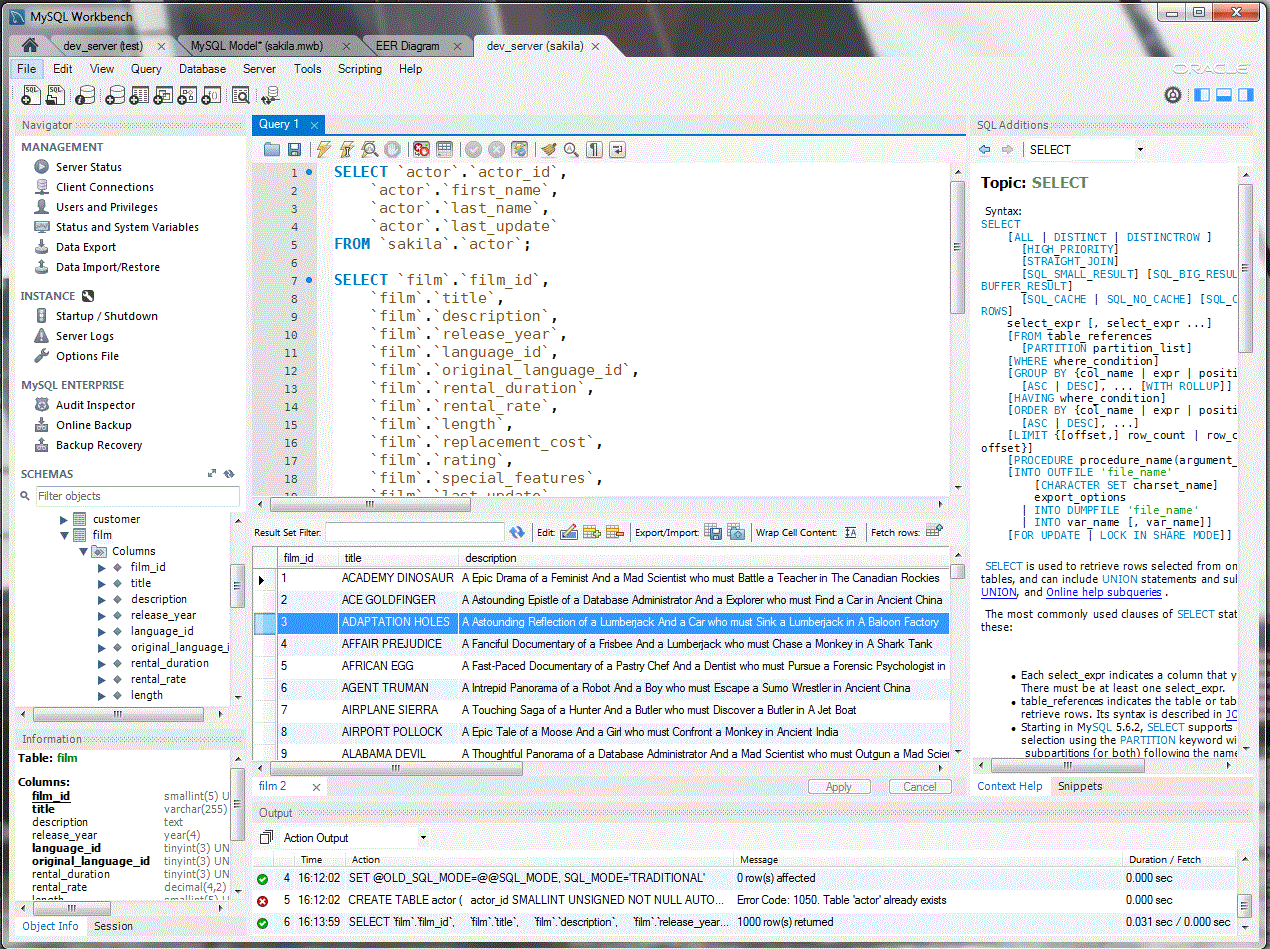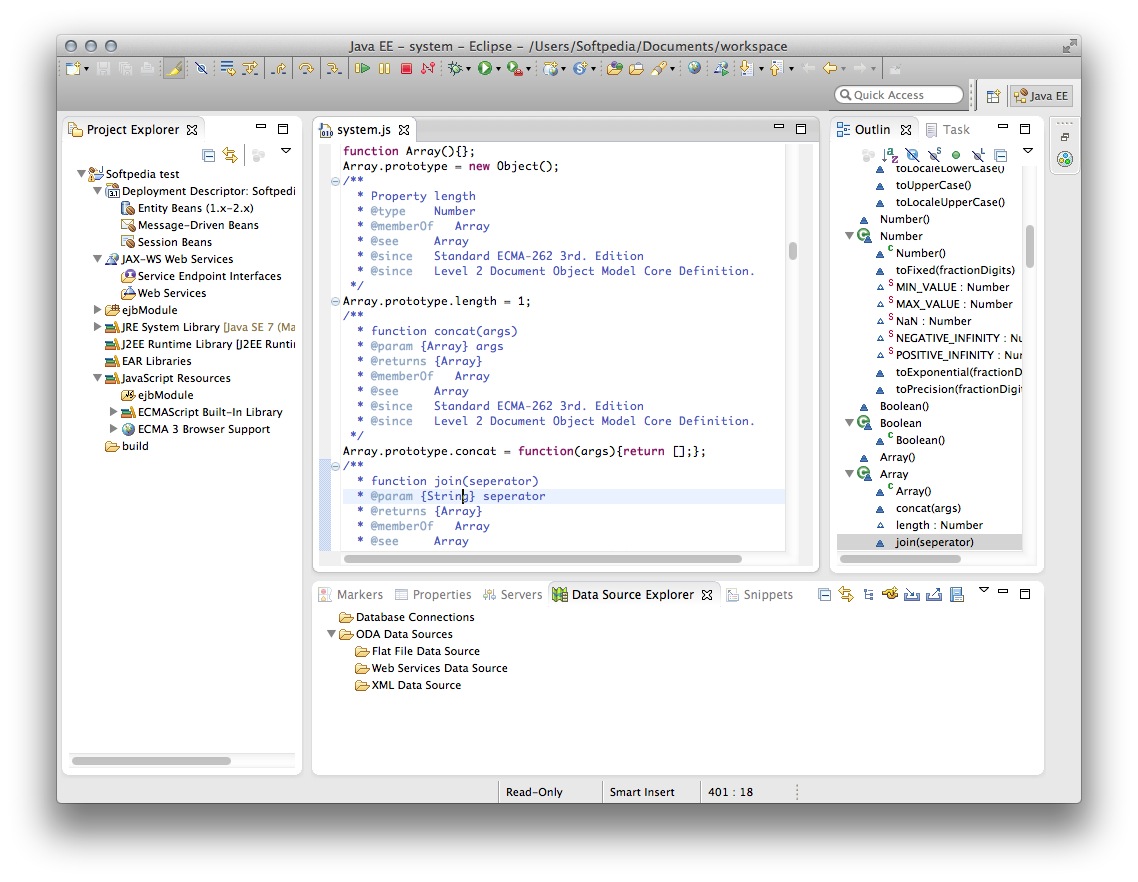

Extensibility – DBeaver is completely open-source and this allows for the integration or extension of its features.
#Sql for mac driver#
In terms of database platforms, it is compatible with, DBeaver also provides support to all options that are JDBC compliant such as MySQL, MariaDB, PostgreSQL, SQLite, Oracle, to DB2, SQL Server, MS Access, Sybase, Firebird, Teradata, Derby, etc.ĭBeaver also provides support to non-JDBC driver databases or data sources such as MongoDB and Cassandra. With DBeaver, you can execute your SQL tasks on operating systems such as Windows, Mac, Solaris, AIX, etc.
#Sql for mac software#
The Top 5 SQL Editing Software Applications DBeaverĪs free SQL Editors go, DBeaver is one of the popular open-source SQL clients available to database developers, programmers, and administrators looking for a feature-rich editor to work with. Now that you know the criteria we used in comparing the different free SQL editors available for use, it is important to state that these criteria led to the five choices below. Therefore, an SQL with user-friendly features must be considered before making your choice. Ease of Use – SQL editors are used by everyone interested in Database management/query including amateurs.Extensibility – Pros who are already used to certain premium features would definitely be interested in an SQL editor that can be extended to capture particular requirements.

This will help you easily integrate your edited scripts into any database without hassles.

The Extended Events people are like vegans, crossfitters, and atheists: they can't wait to tell you about their religion.) Extended Events is the replacement for Profiler, but the thing is, if you're just getting started, you're going to want to use SSMS's excellent wizard for setting up a new XE session - meaning, you still need SSMS. (This isn't really a solution, but I know someone's going to suggest it, so might as well get it out of the way. (Disclaimer: I'm one of the sp_BlitzCache authors.) You can run it from anything app runs T-SQL, like Microsoft's new cross-platform SQL Operations Studio. Yes, right now, even as you're reading advice on a web site. SQL Server is already gathering this data for you on every supported version/edition. The open source sp_BlitzCache analyzes the most resource-intensive queries in your plan cache - without starting a heavy-overhead trace or XE session. (That's how I manage SQL Server personally - I'm a Microsoft Certified Master of SQL Server, and I've been using Macs since the mid-2000s.) After all, if you're managing SQL Server, you probably need SQL Server Management Studio anyway, and that's still Windows-only. Server-side traces can output to file or to table - I'd caution against writing the trace data into a table on the same server that you're monitoring because that'll have a performance impact.
#Sql for mac windows#
(Heck, I recommend this to folks even when they have Windows on the desktop.) SQL Server Central has a good Stairway to Server-side Tracing. You don't get the Profiler GUI, but the good news is that this kind of tracing is faster.


 0 kommentar(er)
0 kommentar(er)
